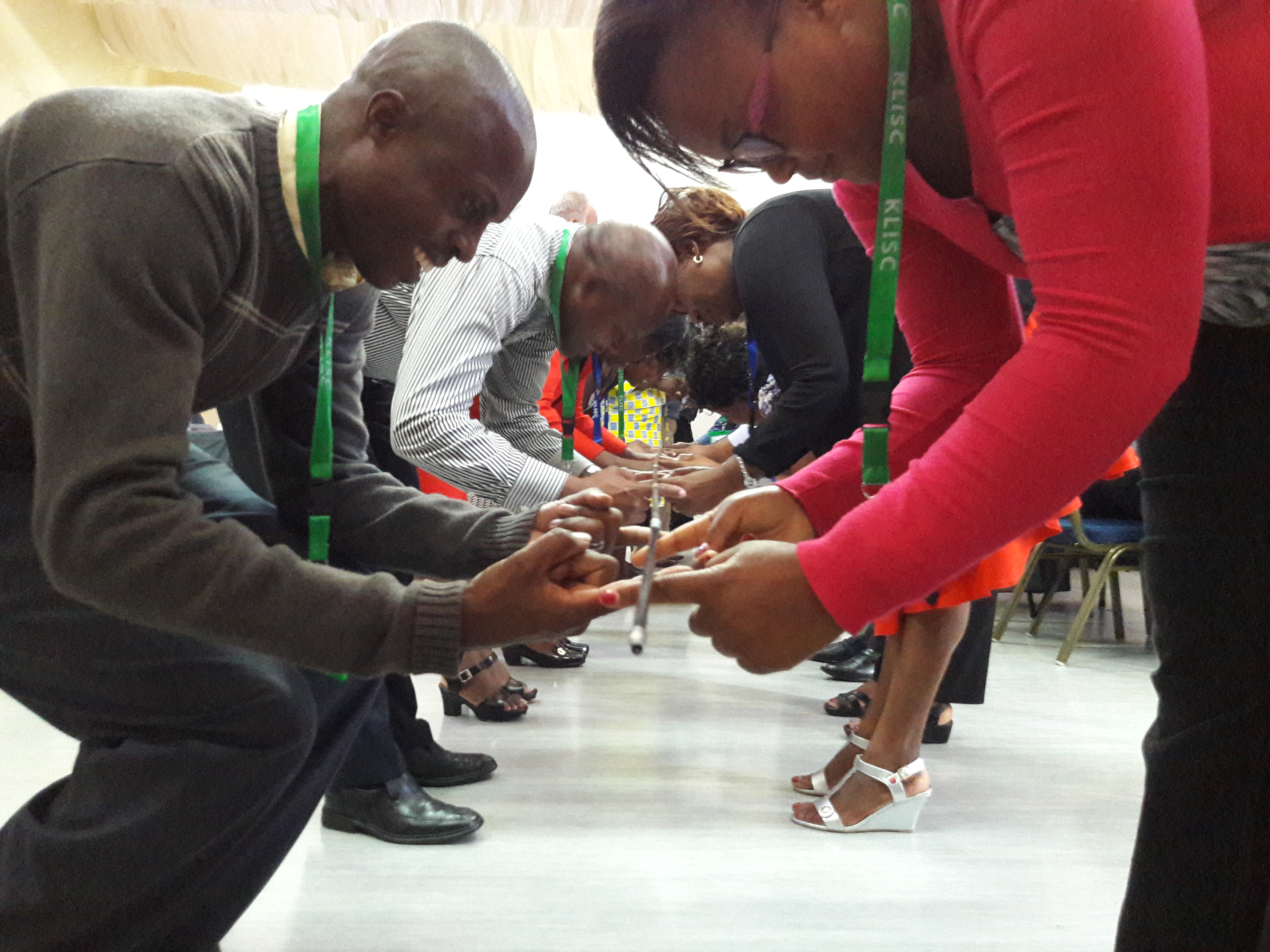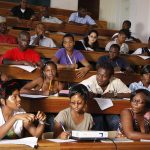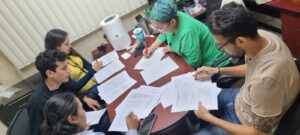
Strengthening research and knowledge systems: reflections from our work
Central to INASP’s recently completed five-year SRKS programme were the principles of high-quality capacity development; sustainability; local leadership; adaptability; partnership; gender equity; and learning. In this post we share some reflections from our report of the programme.
In March we finished a major five-year programme funded by DFID and Sida, Strengthening Research and Knowledge Systems (SRKS). Having completed the work and reflected on the past five years, we have published a report sharing highlights from the programme and some of the key things we learned and observed.
SRKS was fundamentally a capacity-development programme. It aimed to ensure that Southern partners could provide key services to their local research systems – at organizational or national level – beyond the end of the programme. The programme:
- Improved access to online research and the capacity of partner countries to secure and manage access
- Improved visibility and strengthening quality of locally produced research
- Supported early-career researchers to develop their scientific writing and communication skills
Learning and reflections
As we worked with our partners on these activities – along with developing a learning framework for capacity development and using blended and online learning approaches to enable greater participation by disadvantaged groups – we had a number of key observations and reflections from the work:
- Strong research systems depend on national infrastructure but key parts of the system are often overlooked
- Across the sector, there is widespread recognition that strong research systems are important. While many programmes focus on training individuals, supporting research institutions or strengthening national funding and policy bodies, fewer support critical but less often neglected parts of the system – such as national library consortia and local publishing mechanisms. These sustain access to research information and support the communication of Southern research.
- In supporting these networks and institutions, we need to go beyond technical skills, to strengthening organizational capacity and effectiveness, enabling them to play stronger roles nationally. SRKS built on prior programmes and many aspects of its work are being continued in new programmes; developing national systems is a long-term endeavour.
- Context-sensitive, online approaches provide flexible, scalable support to enable learning
- Appropriately designed online courses can be successful in low resource environments and provide a powerful tool for reaching a wider group of people and enabling them to play their part in global research and knowledge systems.
- Targeted investments and modest interventions can be effective in strengthening research and knowledge systems
- Targeted investments can have impact when they respond to windows of opportunity, are supported by local leadership and enabled by strong partnerships and connections to wider networks.
- Addressing gender barriers and other inequities is vital to ensure full participation in creating knowledge and solving development challenges
- Challenging power systems, and addressing inequities within research systems are crucial to ensure that these systems create knowledge that enables inclusive, just and sustainable development.
- It is also important to use approaches that are designed for specific needs. For example, we found that the flexibility of online learning was attractive for many women because it enables working from home around other commitments and responsibilities, and for researchers who are displaced or unable to travel.
- Adaptive learning enables appropriate response to emerging partner needs and changing contexts
- An iterative and adaptive approach to programme management enables a team to respond to new information and emerging learning, or to changing contexts and need. Doing so can help projects to achieve additional impact. Some funder requirements, as well as aspects of our initial programme design, prevented us from being as adaptive as we would have liked.
The work during the five years of SRKS provided many opportunities to make a difference in research and knowledge systems. It also laid foundations for future work by identifying the potential to bring the learning and expertise of INASP and our partners to strengthen research systems in more difficult contexts. We are now taking forward much of this learning to develop our new Strong and equitable research and knowledge systems in the Global South (SERKS) programme.
Read the full report here.

 Previous Post
Previous Post Next Post
Next Post


